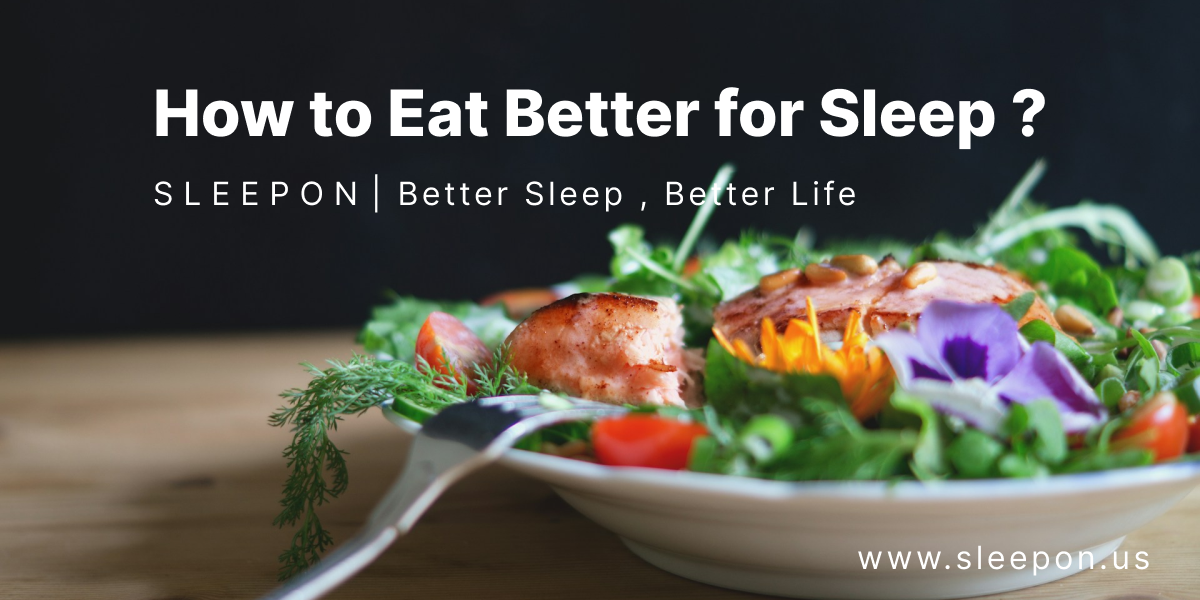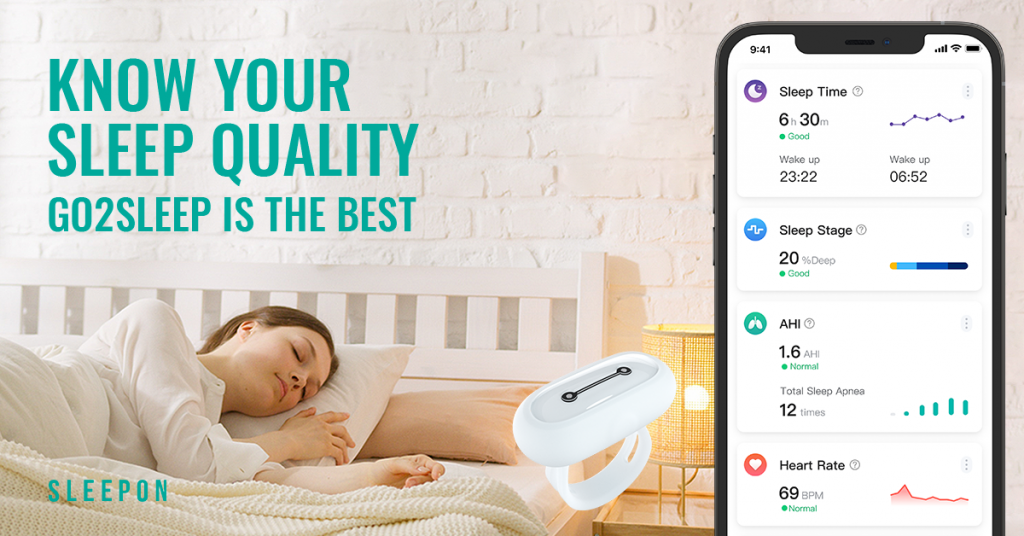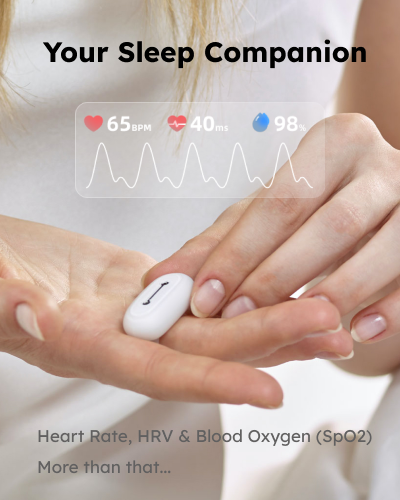
How to Eat Better for Sleep
Have you ever experienced being helped home while drunk, only to collapse into a deep sleep? Or perhaps struggled to sleep at night after drinking too much coffee during the day? Diet significantly impacts sleep quality. Foods rich in tryptophan, a precursor to serotonin and melatonin, such as turkey, chicken, dairy products, nuts, and seeds, help induce sleep.
Foods causing rapid blood sugar fluctuations may disrupt sleep. Consuming caffeine or stimulants near bedtime can affect falling asleep and sleep quality. While alcohol initially induces drowsiness, it can disturb later stages of sleep, leading to fragmented and insufficient rest. Inadequate hydration can also disrupt sleep, as can heavy or large meals close to bedtime. Deficiencies in certain vitamins and minerals like magnesium, calcium, and B vitamins may affect sleep patterns and lead to sleep disorders.
Adults typically need about 7 to 9 hours of sleep per day, meaning approximately one-third of our 24-hour cycle is spent sleeping. Sleep constitutes about one-third of a person’s lifetime. Sufficient and good-quality sleep is crucial for health and proper bodily function. Improving diet can enhance sleep quality. So, what foods help improve sleep quality?
Foods That Help You Sleep
Here are some foods that can help improve sleep quality:
- Tryptophan-rich foods: Tryptophan is an amino acid precursor to serotonin and melatonin, which are important for sleep regulation. Foods like turkey, chicken, dairy products (such as milk and yogurt), nuts (like almonds and walnuts), and seeds (such as pumpkin seeds) are good sources.
- Complex carbohydrates: Foods that are high in complex carbohydrates can increase serotonin levels, which can promote relaxation and sleep. Examples include whole grains (like oats, brown rice, and whole wheat), sweet potatoes, and legumes (such as chickpeas and lentils).
- Magnesium-rich foods: Magnesium helps regulate neurotransmitters involved in sleep. Foods rich in magnesium include leafy green vegetables (like spinach and kale), nuts (such as almonds and cashews), seeds (like pumpkin seeds and sunflower seeds), and whole grains.
- Calcium: Calcium helps the brain use tryptophan to produce melatonin. Good sources of calcium include dairy products (such as milk, cheese, and yogurt), leafy green vegetables (like spinach and collard greens), and fortified plant-based milk (like almond or soy milk).
- Foods with melatonin: Some foods naturally contain melatonin or help boost its production. Examples include tart cherries, grapes, tomatoes, and pomegranates.
- Herbal teas: Certain herbal teas, such as chamomile tea and valerian root tea, have calming effects and can promote relaxation before bedtime.
- Bananas: Bananas contain potassium and magnesium, which can help relax muscles and nerves, promoting better sleep.
- Fatty fish: Fatty fish like salmon, trout, and sardines are high in omega-3 fatty acids, which may help improve sleep quality by reducing inflammation and increasing serotonin levels.
Incorporating these foods into your diet may help promote better sleep quality and overall well-being.
Foods That Can Hurt Sleep
Here are some foods that can potentially disrupt sleep:
- Caffeine: Found in coffee, tea, energy drinks, and chocolate, caffeine is a stimulant that can interfere with falling asleep and reduce sleep quality, especially if consumed close to bedtime.
- Alcohol: While alcohol may initially make you feel drowsy and help you fall asleep faster, it can disrupt later stages of sleep, leading to fragmented and less restorative sleep.
- High-sugar foods: Foods high in sugar and refined carbohydrates can cause rapid spikes and drops in blood sugar levels, which may lead to waking up during the night.
- Spicy foods: Spicy foods can cause heartburn or indigestion, especially when consumed close to bedtime, which can disrupt sleep.
- Heavy or large meals: Eating large or heavy meals close to bedtime can cause discomfort and make it difficult to fall asleep or stay asleep.
- High-fat foods: Foods high in saturated fats, such as fried foods and fatty cuts of meat, can take longer to digest and may cause discomfort, leading to disrupted sleep.
- Acidic foods: Acidic foods like citrus fruits and tomatoes can trigger acid reflux or heartburn, which may disrupt sleep if consumed too close to bedtime.
- Excessive fluid intake: Drinking large amounts of fluids, especially close to bedtime, can increase the likelihood of waking up during the night to use the bathroom.
- Processed or high-sodium foods: Processed foods and those high in sodium can cause dehydration or thirst during the night, potentially disrupting sleep.
- Tyramine-rich foods: Tyramine is an amino acid that can promote alertness. Foods high in tyramine include aged cheeses, smoked meats, and certain fermented foods, which may interfere with sleep if consumed in large quantities before bedtime.
Avoiding or minimizing these foods, especially in the hours leading up to bedtime, can help promote better sleep quality and overall well-being.

How to Eat Better for Sleep
Eating better for sleep involves making mindful choices about what and when you eat. Here are some tips to help improve your sleep through diet:
- Include tryptophan-rich foods: Tryptophan is an amino acid that helps in the production of serotonin and melatonin, neurotransmitters important for sleep. Incorporate foods like turkey, chicken, dairy products (such as milk and yogurt), nuts (like almonds and walnuts), and seeds (such as pumpkin seeds) into your diet.
- Eat complex carbohydrates: Foods rich in complex carbohydrates can increase serotonin levels, promoting relaxation and sleep. Opt for whole grains (like oats, brown rice, and whole wheat), sweet potatoes, and legumes (such as chickpeas and lentils).
- Prioritize magnesium-rich foods: Magnesium helps regulate neurotransmitters involved in sleep. Include foods such as leafy green vegetables (like spinach and kale), nuts (such as almonds and cashews), seeds (like pumpkin seeds and sunflower seeds), and whole grains.
- Include calcium sources: Calcium aids in the production of melatonin, a hormone that regulates sleep. Consume dairy products (such as milk, cheese, and yogurt), leafy green vegetables (like collard greens and broccoli), and fortified plant-based milks (like almond or soy milk).
- Focus on foods with melatonin: Certain foods naturally contain melatonin or help promote its production. Examples include tart cherries, grapes, tomatoes, and pomegranates.
- Moderate your caffeine intake: Limit caffeine consumption, especially in the afternoon and evening. Caffeine is a stimulant that can interfere with sleep.
- Avoid heavy or large meals late at night: Eat smaller, lighter meals closer to bedtime to prevent discomfort and indigestion that can disrupt sleep.
- Limit alcohol consumption: While alcohol may initially make you drowsy, it can disrupt sleep patterns and reduce sleep quality later in the night.
- Stay hydrated: Ensure adequate hydration throughout the day, but reduce fluid intake close to bedtime to minimize disruptions from needing to use the bathroom during the night.
- Establish a regular eating schedule: Aim for consistent meal times each day to help regulate your body’s internal clock and promote better sleep patterns.
By incorporating these dietary tips into your daily routine and making adjustments based on your individual needs and preferences, you can support better sleep quality and overall health.
Frequently Asked Questions About Nutrition and Sleep
Does Your Metabolism Slow Down When You Sleep?
Yes, your metabolism does slow down when you sleep, but not entirely. Here’s how it works:
- Basal Metabolic Rate (BMR): When you sleep, your body’s basal metabolic rate decreases. BMR is the amount of energy (calories) your body needs to maintain basic physiological functions such as breathing, circulation, and cell repair. These functions require energy, and when you’re asleep and at rest, your body’s energy needs decrease.
- Muscle Activity: During sleep, voluntary muscle activity decreases significantly. This includes activities like walking, talking, and even smaller movements during wakefulness. Since muscle activity contributes to overall calorie expenditure, the reduction in muscle activity during sleep further contributes to a lower metabolic rate.
- Energy Conservation: Sleep is considered a period of energy conservation for the body. Instead of expending energy on physical activity and digestion, which are minimal during sleep, the body focuses on essential functions like tissue repair and growth.
- Digestion and Absorption: After a meal, your body digests and absorbs nutrients, which requires energy. The energy expenditure associated with digestion and absorption decreases during sleep when food intake is minimal or absent.
However, it’s important to note that some metabolic processes remain active during sleep. For example, your body continues to regulate temperature, maintain hormonal balance, and repair tissues, all of which require energy. Additionally, certain stages of sleep, such as REM (rapid eye movement) sleep, are associated with increased brain activity and energy consumption.
Overall, while your metabolism slows down during sleep due to reduced activity and energy expenditure, your body continues to perform essential functions that require energy throughout the night.
Sleep Can Help You Lose Weight? Read More >>>

Comment
Leave a Reply Cancel reply
ALL ARTICLES
Subscribe Us
Products
Company
Copyright © SLEEPON. All rights reserved.
SLEEPON keeps both Sleeponhealth and Sleepon.us due to the brand upgrading. We promise to provide the same products and service in both sites.









This article provides a lot of valuable information—great work!